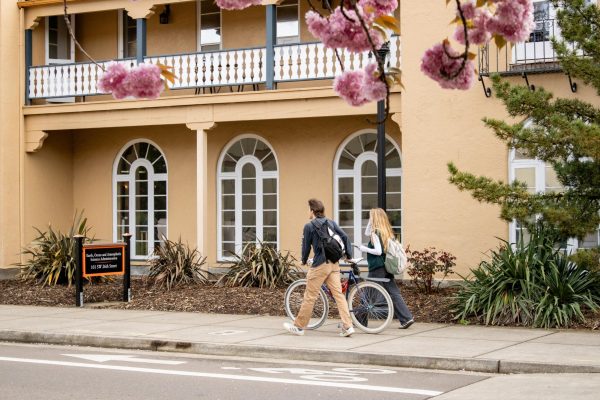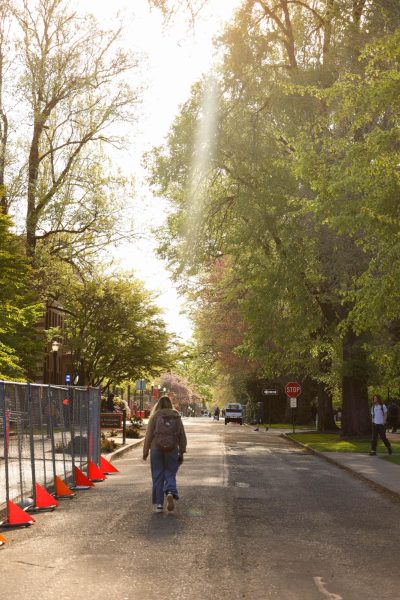Student government process (still) needs more students, perspectives
April 5, 2016
Colleges, universities and politics: I’ve seen a few things since my time working for student papers.
When I first started as a reporter for The Commuter, Linn-Benton Community College’s student newspaper, I got to work closely with representatives at the LBCC Student Leadership Council, which worked to address the college’s board of directors and legislatures in Salem.
The top issue, more often than not, was tuition cost inflation, or the platform known as “affordability.”
I was also around as a reporter for The Daily Barometer between 2013 and 2014 when tuition freezes were approved for colleges and universities across Oregon for the first time in more than a decade.
Months and years prior saw continued participation in the political process, which could be one credit toward how the legislature managed to maintain some flex room to make sure this happens.
But student political participation as of late has seemed much more lackluster.
The Associated Students of Oregon State University elections turnout, for instance, has experienced a steady decline. Last year’s saw around 9 percent, while the year prior had nearly 15 percent.
The amount of diversity in terms of the candidates’ backgrounds—some of them admitted this themselves in Monday’s debates—also appears to be dwindling.
It’s easy to say “the student government doesn’t do their job,” but this can easily become a catch 22 situation.
People like to contest the state of campus politics and budget decisions, yet debate and campus government events continue to draw low turnouts in addition to the usual suspects and occasional news stories.
So where do we start with this?
One candidate for speaker of the house, Joshua Kaufman, said it’s up to different people of different cultural backgrounds to solve their own problems, seems very problematic.
He may have meant that it’s up to different students from various cultural constituencies to reach out to ASOSU and other student government bodies if they feel something more needs to be done with our current political system.
At least, that’s what I hope he meant.
Two presidential candidates, Tabitha Pitzer and Chris Willett, went out of their way to address the issue of sexual assault in regards to campus safety, an issue that audience participants later noted weren’t focused on well enough during the debates.
Did ASOSU know about these concerns? If not, what needs to happen so they know and acknowledge such concerns in the future?
It is definitely the responsibility of student government to engage, first and foremost, with students from other backgrounds to make sure that representatives have the best interests of students at heart.
To that level, it is up to student leaders—past and present—to assist in helping any and all who have issues that require resolution.
We already know student government is capable of amazing things.
Though in the past two years, we’ve seen nothing but “business as usual,” just as OSU President Ed Ray has acknowledged that he wants to get rid of.
I’ll say this once and I’ll say it again: It’s definitely a group effort, and not the core responsibility of one single entity on campus.
On that note, I personally hope that candidates of the future student government can do something more than idly sit by and observe as student participation in political issues continues to dwindle.
At the core of the issue, I don’t believe student leaders are corrupt or “evil.”
I do, however, believe many have been way too apathetic or neutral.
So here’s to a future of action, because this sincerely must change in years to come.
Otherwise, we can all look forward to more tuition increases, more textbook cost increases and less compromise with state legislatures and administrators.
The opinions expressed in Bassinger’s column do not necessarily represent those of The Daily Barometer staff.





















































































































